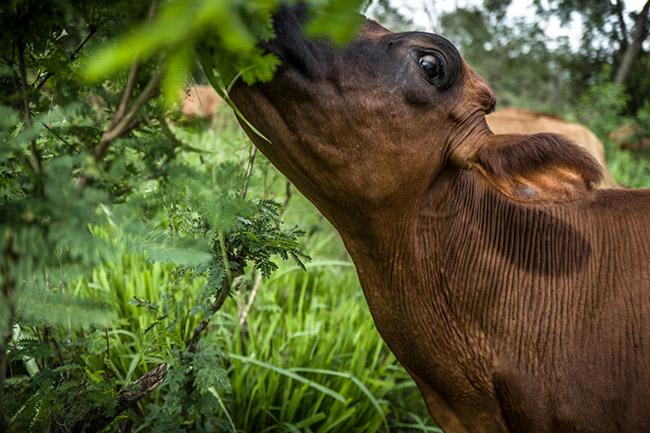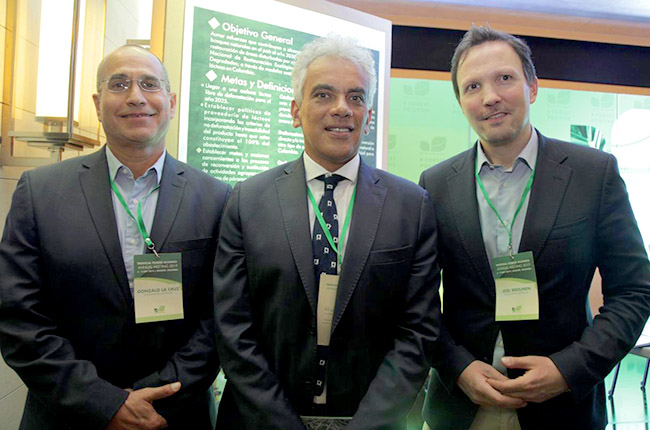
The Colombian government’s current estimates indicate an increase in deforestation, affecting around 270,000 hectares of land in 2018. According to University of Los Andes, livestock production is the fourth cause of deforestation in Colombia after land grabbing, coca crops and infrastructure expansion.
The sector agreements are unprecedented in the Colombian beef and dairy supply chain. They aim to protect forests and vulnerable ecosystems, increase sustainable production and ensure market uptake.
The agreements were signed by seven companies in the beef and dairy sector:
- Asobrangus
- Takami Group
- Prestige
- Carnatural
- Alqueria
- Takami Group
- Hermanos Rauch
More than ten academic and civil society organizations also signed the declaration including CIAT, WWF, TNC, GGGI and Solidaridad.
 Pictured: Gonzalo La Cruz, managing director of Solidaridad South America, Ricardo Lozano, Colombian Minister of Environment, and Joel Brounen, country director of Solidaridad Colombia at the signing of the agreements during the Tropical Forest Alliance global meeting on 7 May 2019.
Pictured: Gonzalo La Cruz, managing director of Solidaridad South America, Ricardo Lozano, Colombian Minister of Environment, and Joel Brounen, country director of Solidaridad Colombia at the signing of the agreements during the Tropical Forest Alliance global meeting on 7 May 2019.
“This milestone reflects the commitment of the food producing sectors towards the reduction of its environmental footprint, but it is important to secure the investments to fulfil the agreed objectives” mentions Joel Brounen, Solidaridad Colombia country director.
Solidaridad has supported the implementation and monitoring of similar sector agreements in Colombia, including palm oil. Solidaridad is currently a member of the Sustainable Livestock Roundtable in Colombia, facilitating the working group of corporate players in the sector.
We will use our expertise and role to add speed and scale to the sustainable production of dairy and beef products, specifically to measure, monitor and improve the performance of small and mid-size producers.
– Joel Brounen, Solidaridad Colombia country director
The agreements highlight the importance of scaling effective strategies towards the restoration and rehabilitation of agroecosystems while, at the same time, increasing productivity for farmers.
Implementing a sector-wide agreement
The first steps towards implementing this milestone agreement are:
- the design and implementation of monitoring protocol
- the development of a support model to producers
- the definition of incentives for zero-deforestation production and sustainable livestock practices.
The agreement also envisages the creation of a strategy to raise awareness among consumers, and the development of a zero-deforestation label for beef and dairy sector.
“At the moment 38 million hectares are used for livestock production, of which only around 0.2% is currently mapped as sustainable. The sector’s current average land use is only 0.6 animals per hectare and smallholder productivity has an average two liters of milk per day per cow. There is much room for improvement and restoration that will benefit both producers, processors and the conservation areas,” said Joel Brounen.
“In Colombia, with more efficient use of existing land use and production, the industry can become more competitive and reduce its environmental footprint,” he concluded.
Learn more about Solidaridad’s livestock and dairy programmes.
